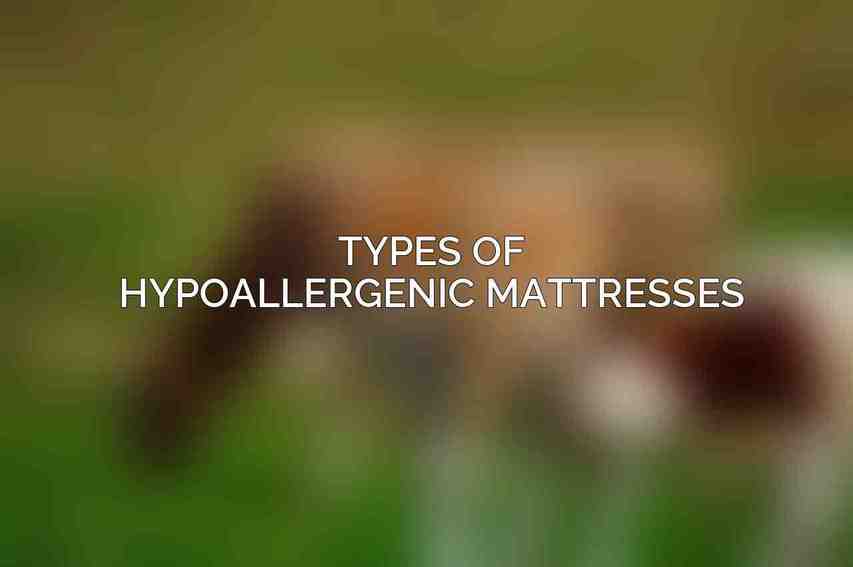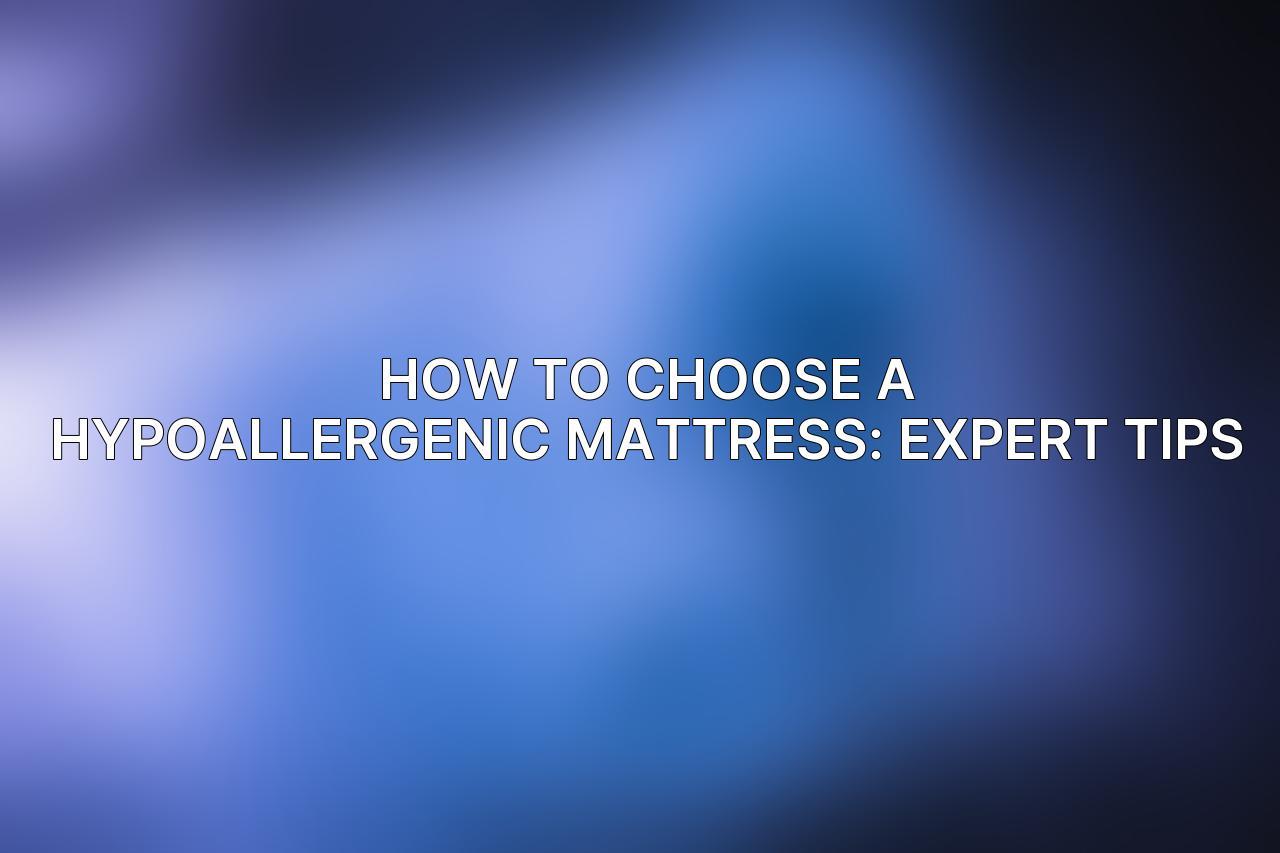When looking for the perfect mattress, it’s essential to consider your individual requirements. Allergies and sensitivities can have a significant impact on your choice. Common allergens found in mattresses include dust mites, mold, and pet dander. By identifying your specific triggers, such as dust mite allergies or sensitivity to certain fabrics, you can narrow down your options. Additionally, understanding your sleep preferences is crucial. Factors like preferred firmness levels, sleeping position, and body type all play a role in selecting the right mattress for a restful night’s sleep.
| Product | Price Range | Features | Pros | Cons |
|---|---|---|---|---|
| Sleep Number 360 Smart Bed | $$$$ | Adjustable firmness, temperature regulation, sleep tracking | Personalized comfort, excellent support, multiple features | Expensive, complex setup |
| Purple Mattress | $$$ | Unique gel-infused grid, pressure relief, breathable | Excellent pressure relief, good for back pain, breathable | Can feel firm, not as good for side sleepers |
| Saatva Classic | $$$ | Innerspring with euro top, plush feel, organic materials | Durable, comfortable, good for back and side sleepers | Not as good for stomach sleepers, can be heavy |
| Tuft & Needle Original | $$ | Foam mattress, breathable, pressure relief | Affordable, good for back pain, cool sleep | Can feel firm, may not be as comfortable for side sleepers |
| Brooklyn Bedding Signature | $$$ | Hybrid mattress, pressure relief, good for back pain | Comfortable, good for all sleep positions, durable | Can be heavy, expensive |
Quick List :
Read more about this on Sealy Zonal Support Hypoallergenic Mattress Protector Review
- 1. Synthetic Materials:
- 2. How to Choose a Hypoallergenic Mattress: Expert Tips:
Types of Hypoallergenic Mattresses

Organic and Natural Materials
For individuals seeking a more eco-friendly option, mattresses made from organic cotton and latex or innerspring mattresses with natural fillings are excellent choices. These materials are not only hypoallergenic but also sustainable, making them ideal for environmentally-conscious consumers.
Synthetic Materials
Alternatively, hypoallergenic mattresses crafted from memory foam and gel foam, as well as polyester and nylon blends, provide a comfortable and allergen-resistant sleeping surface. These materials are designed to offer support and comfort while minimizing the risk of triggering allergies. Explore a variety of options including the Best Hypoallergenic Mattress available in the market.
Features to Consider
When selecting a hypoallergenic mattress, pay attention to the cover materials. Opt for breathable fabrics like cotton or bamboo to promote airflow and reduce moisture buildup. Additionally, choose mattresses with washable or removable covers for easy cleaning and maintenance. The fillings and materials used in the mattress are equally important. Look for hypoallergenic fillings such as memory foam, latex, or down alternatives, as well as breathable materials that aid in temperature regulation. Consider the construction of the mattress, including height, thickness, edge support, and motion isolation capabilities for a comfortable and undisturbed sleep experience.
Stay tuned for more information about Mattress Certifications and Care and Maintenance tips.
Frequently Asked Questions
What is a hypoallergenic mattress?
A hypoallergenic mattress is designed to minimize allergens such as dust mites, mold, and pet dander, making it a great option for individuals with allergies.
Explore further with Tempurerest Cooling Gel Memory Foam Antimicrobial Hypoallergenic Mattress Topper Review
Explore further with Twin Hypoallergenic Mattress: Best Choices
Why should I choose a hypoallergenic mattress?
Choosing a hypoallergenic mattress can help reduce allergic reactions during sleep, leading to better overall health and improved quality of rest.
What materials should I look for in a hypoallergenic mattress?
Look for materials like organic cotton, natural latex, or bamboo fabric, as they are hypoallergenic and resistant to common allergens.
Read more on Best King Hypoallergenic Mattresses
How do I know if a mattress is truly hypoallergenic?
Check for certifications from organizations such as CertiPUR-US or Oeko-Tex, which indicate that the mattress has been tested for harmful substances and allergens.
Are hypoallergenic mattresses more expensive than regular mattresses?
While hypoallergenic mattresses may be slightly more expensive, the benefits of reduced allergies and improved sleep quality make them a worthwhile investment for many people.
Read more about this on Canopy Hypoallergenic Mattress Topper Review

